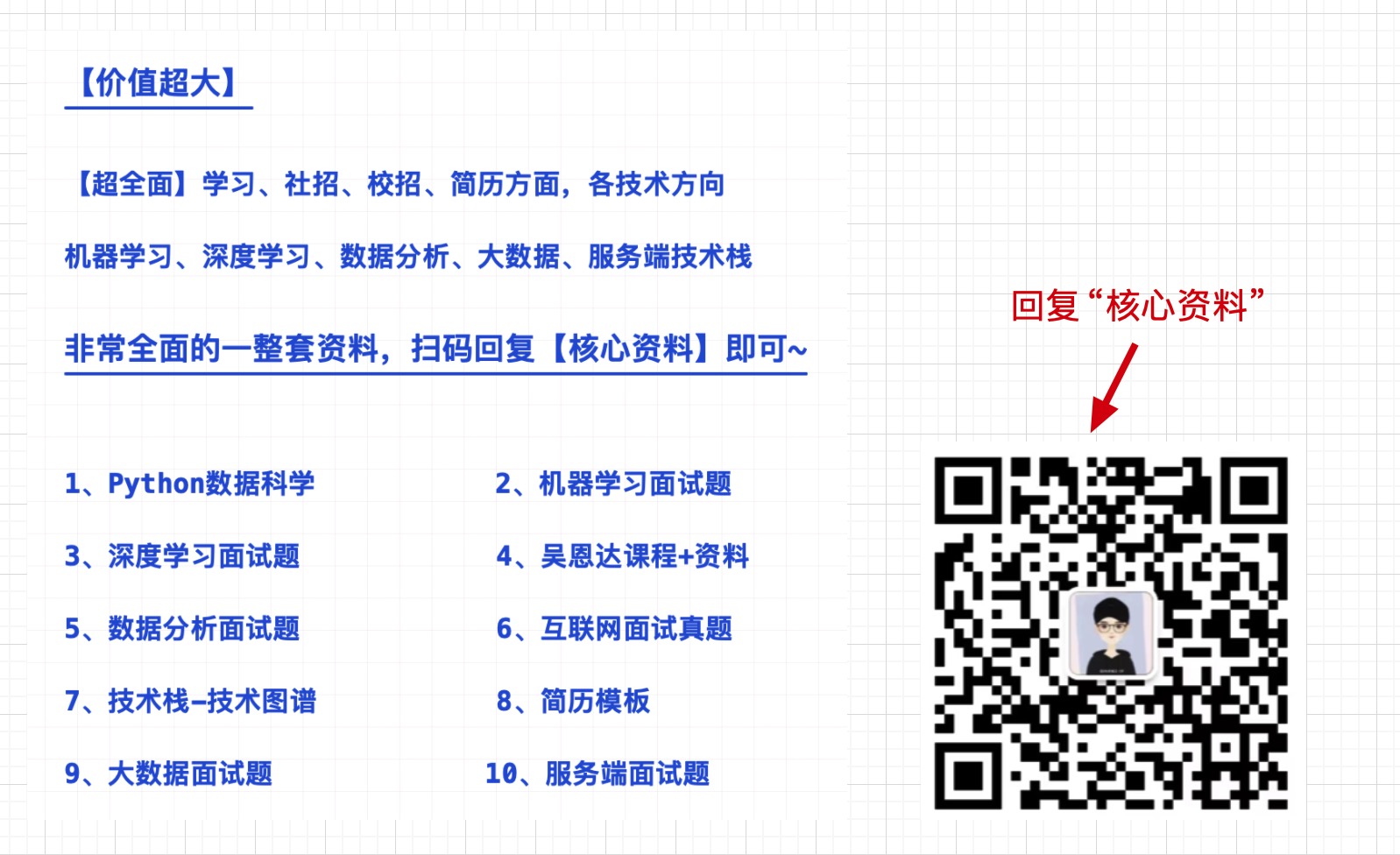出现该问题,发现网上大多数说的都是再1.0的情况下解决该问题。
这个问题的出现主要是tensorflow中没有examples。
解决方法
检查tensorflow的文件夹下是否有examples文件夹。我使用的是anaconda,所以路径是下图所示。

我这里原本是没有examples文件夹的,将github:下载地址中tensorflow文件夹下的examples文件夹拷贝到该目录下。

之后发现还是没能解决问题,发现examples中缺少tutorials文件夹。在官方的github中没发现这个文件,在其他博主那里下载到了该文件。
tutorials文件夹下载链接
提取码:cxy7
点击此处可访问:博主文章链接
; 但是依旧没有解决问题…😢
前面博主使用的应该是tf1.0的版本。参考以下博主的方法解决了问题:tf2.0解决该问题
很简单粗暴的一个方法。
在工程下新建一个input_data.py文件,将tutorials文件夹下mnist中的input_data.py的内容复制到该文件中,再在主文件中 import input_data一下。

input_data.py文件内容放在下面,需要的自取。😎
"""Functions for downloading and reading MNIST data (deprecated).
This module and all its submodules are deprecated.
"""
from __future__ import absolute_import
from __future__ import division
from __future__ import print_function
import collections
import gzip
import os
import numpy
from six.moves import urllib
from six.moves import xrange
from tensorflow.python.framework import dtypes
from tensorflow.python.framework import random_seed
from tensorflow.python.platform import gfile
from tensorflow.python.util.deprecation import deprecated
_Datasets = collections.namedtuple('_Datasets', ['train', 'validation', 'test'])
DEFAULT_SOURCE_URL = 'https://storage.googleapis.com/cvdf-datasets/mnist/'
def _read32(bytestream):
dt = numpy.dtype(numpy.uint32).newbyteorder('>')
return numpy.frombuffer(bytestream.read(4), dtype=dt)[0]
@deprecated(None, 'Please use tf.data to implement this functionality.')
def _extract_images(f):
"""Extract the images into a 4D uint8 numpy array [index, y, x, depth].
Args:
f: A file object that can be passed into a gzip reader.
Returns:
data: A 4D uint8 numpy array [index, y, x, depth].
Raises:
ValueError: If the bytestream does not start with 2051.
"""
print('Extracting', f.name)
with gzip.GzipFile(fileobj=f) as bytestream:
magic = _read32(bytestream)
if magic != 2051:
raise ValueError('Invalid magic number %d in MNIST image file: %s' %
(magic, f.name))
num_images = _read32(bytestream)
rows = _read32(bytestream)
cols = _read32(bytestream)
buf = bytestream.read(rows * cols * num_images)
data = numpy.frombuffer(buf, dtype=numpy.uint8)
data = data.reshape(num_images, rows, cols, 1)
return data
@deprecated(None, 'Please use tf.one_hot on tensors.')
def _dense_to_one_hot(labels_dense, num_classes):
"""Convert class labels from scalars to one-hot vectors."""
num_labels = labels_dense.shape[0]
index_offset = numpy.arange(num_labels) * num_classes
labels_one_hot = numpy.zeros((num_labels, num_classes))
labels_one_hot.flat[index_offset + labels_dense.ravel()] = 1
return labels_one_hot
@deprecated(None, 'Please use tf.data to implement this functionality.')
def _extract_labels(f, one_hot=False, num_classes=10):
"""Extract the labels into a 1D uint8 numpy array [index].
Args:
f: A file object that can be passed into a gzip reader.
one_hot: Does one hot encoding for the result.
num_classes: Number of classes for the one hot encoding.
Returns:
labels: a 1D uint8 numpy array.
Raises:
ValueError: If the bystream doesn't start with 2049.
"""
print('Extracting', f.name)
with gzip.GzipFile(fileobj=f) as bytestream:
magic = _read32(bytestream)
if magic != 2049:
raise ValueError('Invalid magic number %d in MNIST label file: %s' %
(magic, f.name))
num_items = _read32(bytestream)
buf = bytestream.read(num_items)
labels = numpy.frombuffer(buf, dtype=numpy.uint8)
if one_hot:
return _dense_to_one_hot(labels, num_classes)
return labels
class _DataSet(object):
"""Container class for a _DataSet (deprecated).
THIS CLASS IS DEPRECATED.
"""
@deprecated(None, 'Please use alternatives such as official/mnist/_DataSet.py'
' from tensorflow/models.')
def __init__(self,
images,
labels,
fake_data=False,
one_hot=False,
dtype=dtypes.float32,
reshape=True,
seed=None):
"""Construct a _DataSet.
one_hot arg is used only if fake_data is true. dtype can be either
uint8 to leave the input as [0, 255], or float32 to rescale into
[0, 1]. Seed arg provides for convenient deterministic testing.
Args:
images: The images
labels: The labels
fake_data: Ignore inages and labels, use fake data.
one_hot: Bool, return the labels as one hot vectors (if True) or ints (if
False).
dtype: Output image dtype. One of [uint8, float32]. uint8 output has
range [0,255]. float32 output has range [0,1].
reshape: Bool. If True returned images are returned flattened to vectors.
seed: The random seed to use.
"""
seed1, seed2 = random_seed.get_seed(seed)
numpy.random.seed(seed1 if seed is None else seed2)
dtype = dtypes.as_dtype(dtype).base_dtype
if dtype not in (dtypes.uint8, dtypes.float32):
raise TypeError('Invalid image dtype %r, expected uint8 or float32' %
dtype)
if fake_data:
self._num_examples = 10000
self.one_hot = one_hot
else:
assert images.shape[0] == labels.shape[0], (
'images.shape: %s labels.shape: %s' % (images.shape, labels.shape))
self._num_examples = images.shape[0]
if reshape:
assert images.shape[3] == 1
images = images.reshape(images.shape[0],
images.shape[1] * images.shape[2])
if dtype == dtypes.float32:
images = images.astype(numpy.float32)
images = numpy.multiply(images, 1.0 / 255.0)
self._images = images
self._labels = labels
self._epochs_completed = 0
self._index_in_epoch = 0
@property
def images(self):
return self._images
@property
def labels(self):
return self._labels
@property
def num_examples(self):
return self._num_examples
@property
def epochs_completed(self):
return self._epochs_completed
def next_batch(self, batch_size, fake_data=False, shuffle=True):
"""Return the next batch_size examples from this data set."""
if fake_data:
fake_image = [1] * 784
if self.one_hot:
fake_label = [1] + [0] * 9
else:
fake_label = 0
return [fake_image for _ in xrange(batch_size)
], [fake_label for _ in xrange(batch_size)]
start = self._index_in_epoch
if self._epochs_completed == 0 and start == 0 and shuffle:
perm0 = numpy.arange(self._num_examples)
numpy.random.shuffle(perm0)
self._images = self.images[perm0]
self._labels = self.labels[perm0]
if start + batch_size > self._num_examples:
self._epochs_completed += 1
rest_num_examples = self._num_examples - start
images_rest_part = self._images[start:self._num_examples]
labels_rest_part = self._labels[start:self._num_examples]
if shuffle:
perm = numpy.arange(self._num_examples)
numpy.random.shuffle(perm)
self._images = self.images[perm]
self._labels = self.labels[perm]
start = 0
self._index_in_epoch = batch_size - rest_num_examples
end = self._index_in_epoch
images_new_part = self._images[start:end]
labels_new_part = self._labels[start:end]
return numpy.concatenate((images_rest_part, images_new_part),
axis=0), numpy.concatenate(
(labels_rest_part, labels_new_part), axis=0)
else:
self._index_in_epoch += batch_size
end = self._index_in_epoch
return self._images[start:end], self._labels[start:end]
@deprecated(None, 'Please write your own downloading logic.')
def _maybe_download(filename, work_directory, source_url):
"""Download the data from source url, unless it's already here.
Args:
filename: string, name of the file in the directory.
work_directory: string, path to working directory.
source_url: url to download from if file doesn't exist.
Returns:
Path to resulting file.
"""
if not gfile.Exists(work_directory):
gfile.MakeDirs(work_directory)
filepath = os.path.join(work_directory, filename)
if not gfile.Exists(filepath):
urllib.request.urlretrieve(source_url, filepath)
with gfile.GFile(filepath) as f:
size = f.size()
print('Successfully downloaded', filename, size, 'bytes.')
return filepath
@deprecated(None, 'Please use alternatives such as:'
' tensorflow_datasets.load(\'mnist\')')
def read_data_sets(train_dir,
fake_data=False,
one_hot=False,
dtype=dtypes.float32,
reshape=True,
validation_size=5000,
seed=None,
source_url=DEFAULT_SOURCE_URL):
if fake_data:
def fake():
return _DataSet([], [],
fake_data=True,
one_hot=one_hot,
dtype=dtype,
seed=seed)
train = fake()
validation = fake()
test = fake()
return _Datasets(train=train, validation=validation, test=test)
if not source_url:
source_url = DEFAULT_SOURCE_URL
train_images_file = 'train-images-idx3-ubyte.gz'
train_labels_file = 'train-labels-idx1-ubyte.gz'
test_images_file = 't10k-images-idx3-ubyte.gz'
test_labels_file = 't10k-labels-idx1-ubyte.gz'
local_file = _maybe_download(train_images_file, train_dir,
source_url + train_images_file)
with gfile.Open(local_file, 'rb') as f:
train_images = _extract_images(f)
local_file = _maybe_download(train_labels_file, train_dir,
source_url + train_labels_file)
with gfile.Open(local_file, 'rb') as f:
train_labels = _extract_labels(f, one_hot=one_hot)
local_file = _maybe_download(test_images_file, train_dir,
source_url + test_images_file)
with gfile.Open(local_file, 'rb') as f:
test_images = _extract_images(f)
local_file = _maybe_download(test_labels_file, train_dir,
source_url + test_labels_file)
with gfile.Open(local_file, 'rb') as f:
test_labels = _extract_labels(f, one_hot=one_hot)
if not 0 validation_size len(train_images):
raise ValueError(
'Validation size should be between 0 and {}. Received: {}.'.format(
len(train_images), validation_size))
validation_images = train_images[:validation_size]
validation_labels = train_labels[:validation_size]
train_images = train_images[validation_size:]
train_labels = train_labels[validation_size:]
options = dict(dtype=dtype, reshape=reshape, seed=seed)
train = _DataSet(train_images, train_labels, **options)
validation = _DataSet(validation_images, validation_labels, **options)
test = _DataSet(test_images, test_labels, **options)
return _Datasets(train=train, validation=validation, test=test)
Original: https://blog.csdn.net/qq_40846862/article/details/124035370
Author: 华墨1024
Title: ModuleNotFoundError: No module named ‘tensorflow.examples‘
原创文章受到原创版权保护。转载请注明出处:https://www.johngo689.com/496348/
转载文章受原作者版权保护。转载请注明原作者出处!

